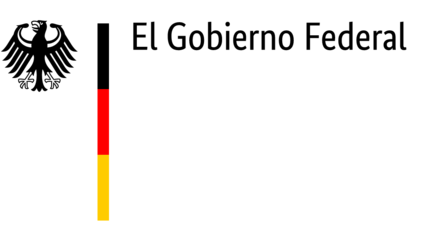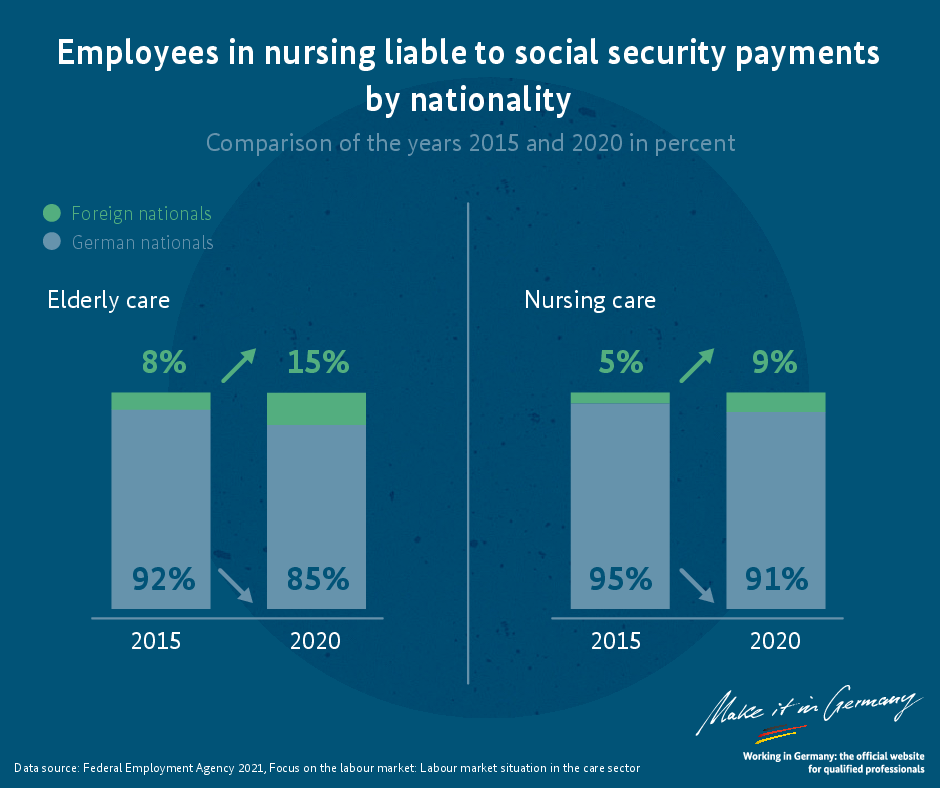Recruiting nursing professionals from abroad for the German labour market
Correct as of: 28.12.2021
The skills gap in nursing has been widening for years. The sector is increasingly reliant on nursing professionals from abroad, especially from non-EU countries – in fact, their numbers now exceed those from EU Member States. In our latest newsletter, we highlight the opportunities employers have to tap into the potential for qualified professionals and young talent abroad, and what they need to consider in the process.
The labour market situation in nursing
More vacancies than unemployed nursing professionals
Statistics from the Federal Employment Agency (BA) reflect what many hospitals and nursing facilities have long felt: there is no mistaking the fact that there are shortages in the nursing sector. The BA classifies both (general) nursing and geriatric care professions as “bottleneck professions” – in all German states, no less[1].
While there are more unemployed people than vacancies at the assistant level, the situation is the opposite at the skilled worker level. The number of unemployed skilled workers in relation to the vacancies that match their qualifications has fallen significantly in recent years. In 2020, there were only 47 unemployed nurses registered for every 100 vacancies that matched their qualifications, compared to 80 unemployed in 2014. In geriatric nursing, the figure has fallen from 38 to only 26 unemployed nursing professionals per 100 registered vacancies in the same period[2].
Growing proportion of qualified professionals from abroad
In the wake of increasing bottlenecks, the nursing sector is increasingly resorting to labour from abroad. In 2020, professionals from abroad accounted for 15% of geriatric nurses (91,000 employees subject to social insurance contributions), a slightly higher figure than that in general nursing (9%, equating to 103,000 employees). Qualified professionals from abroad accounted for around 11% of staff in the entire nursing sector. There has been a marked increase in both areas over the last five years (see figure).

